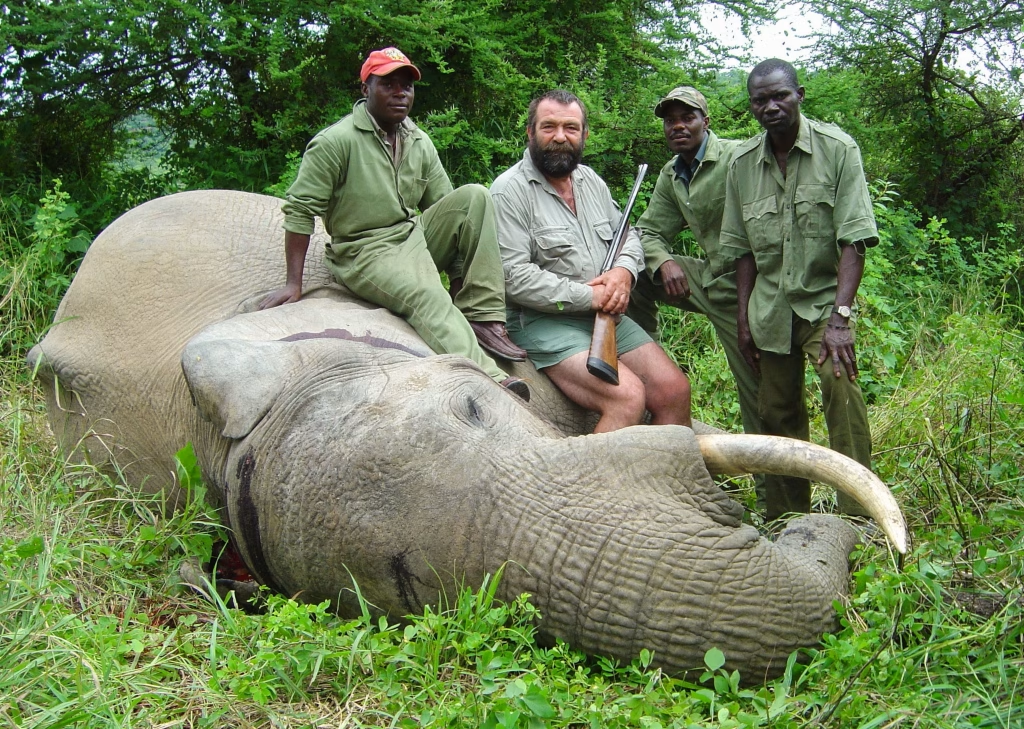In a World Elephant Day-themed ceremony, scientists and environmentalists yesterday presented the Tanzanian High Commission in Nairobi with a global petition that has gathered over 500,000 signatures since March 2024, calling for an end to the sport shooting of elephants.
The Amboseli Trust for Elephants’ founder, Dr. Cynthia Moss, and the activist group Elephant Voices, led the organizing effort for the petition, which calls for an end to elephant trophy hunting inside Tanzania’s portion of the conservation zone along the country’s border with Kenya. Dr. Joyce Poole is the group’s scientific director.
At a news conference held in Nairobi, a sizable contingent of activists attended the ceremony where the consortium announced that the petition had been transported by courier to the State House and the nation’s diplomatic representation.
In addition to its exceptional genetic reservoir that crosses national boundaries, the petition highlights the Amboseli–West Kilimanjaro elephant population’s tremendous ecological and economic worth.
This clarification comes after the Tanzanian government decided to allow “super tuskers” to hunt in the Greater Amboseli–West Kilimanjaro elephant population. According to NGO leaders, trophy hunters in Northern Tanzania have killed five jumbos in the last eight months.
Their main worry is that similar licenses would be awarded as the busiest travel season draws near, even though they acknowledge that Tanzania’s government has the sovereign authority to control the country’s elephant population.
In correspondence with the two heads of state, scientists confirmed that the elephant population is shared and that, thanks to an ongoing bilateral agreement, its protection has been steady for thirty years.
The scientists elaborated that up until last year, 30 years of no elephant hunting incidents were maintained. “The loss of these elephants is not just a blow to elephant populations but to our collective efforts in conservation,” the experts said.
“The last unfortunate super tusker hunting incidence had been in 1994 leading to an international outcry when four well-known elephants (RBG, Sleepy, Saibulu, and Oloitipitip), subjects of the Amboseli Elephant Research Project, were shot by trophy hunters on the Tanzanian side of the border,” they said, recalling that “the new quota that was issued in 2022 to Kilombero North Safaris” was what started the recent hunting wave.
A moratorium on trophy hunting on transboundary elephant populations was agreed upon by the two countries in 1995 in response to public outcry. The research director insisted that the reintroduction of hunting permits would “threaten the survival of iconic Kenya-Tanzania cross-border elephants, the largest in Africa.”
They claimed that the Amboseli habitat, a protection region with the largest population of these creatures, is home to just 10 elephants, each with tusks weighing approximately 45 kg (100 lbs).
Hunting may lead to the extinction of super-tuskers within the next three years, according to the director of “Voices,” who also emphasized that “the recent killings of super-tuskers are particularly concerning due to the rarity and special role these older males play in elephant society.”
Hunting was outlawed in Kenya in 1977 and is still illegal there, but as hunting businesses get licenses for their customers, it has just become allowed across the border.
More than fifty African conservation organizations supported the international campaign on Avaaz, which called on Tanzanian authorities to work with Kenyan colleagues to safeguard the largest jumbos as a shared natural legacy.
The petition is addressed to Presidents Samia Suluhu Hassan and William Ruto, asking them “to meet and agree on the shared immense scientific and economic value of preserving these cross-border elephants,” according to Dr. Paula Kahumbu, CEO of Wildlife Direct.
According to her, the short-term gains from trophy hunting in one nation are greatly outweighed by the long-term benefits of ecotourism, science, and conservation. Meanwhile, the petition aims to “highlight unethical hunting practices, including use of helicopters to locate elephants and the burning or burying of carcasses to conceal evidence.”
Dr. Winnie Kiiru, of the Elephant Protection Initiative, which is associated with the Mpala Research Center, had similar views, saying that “it is morally troubling and economically short-sighted to kill these iconic elephants for’sport.'”

